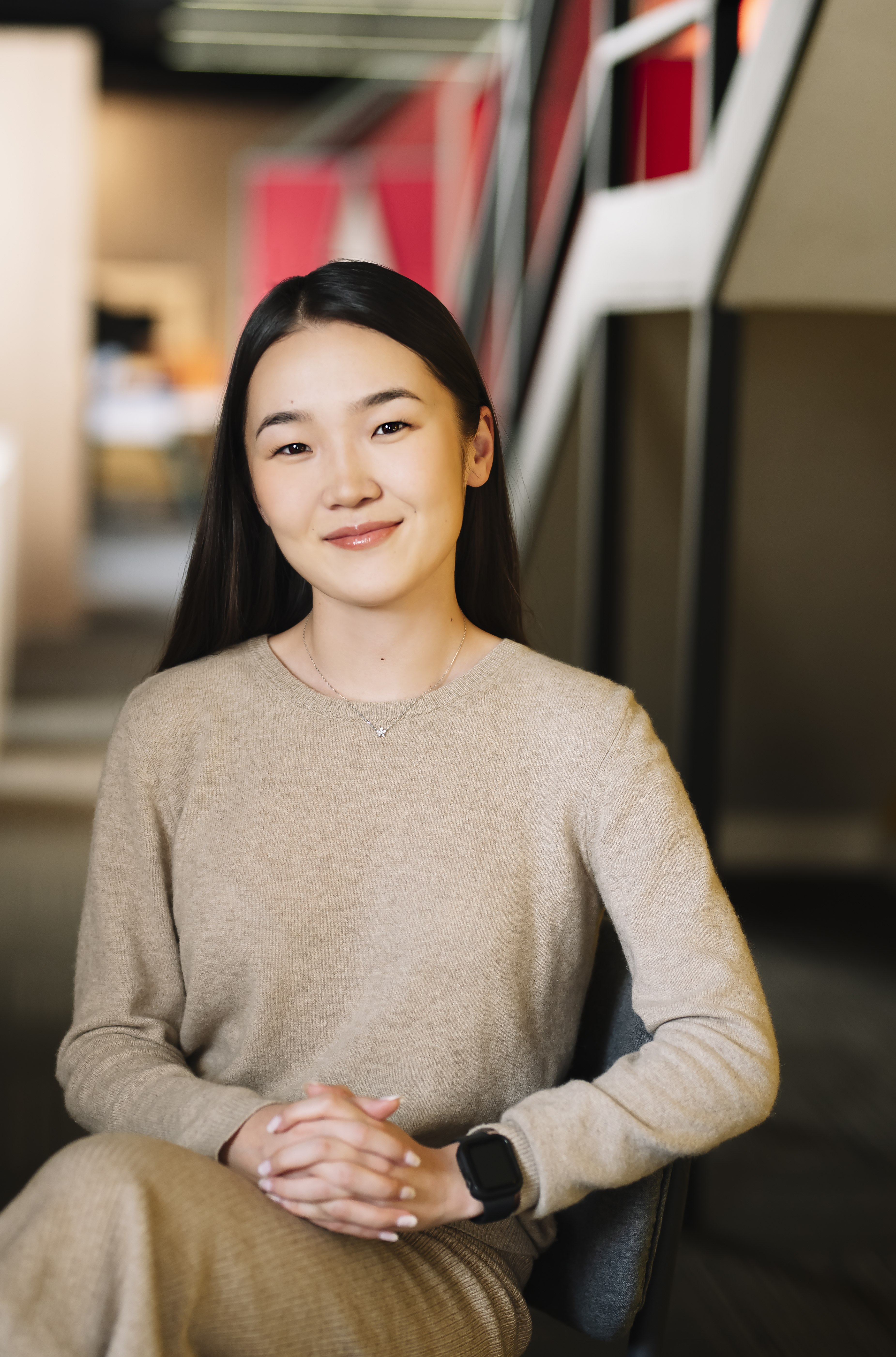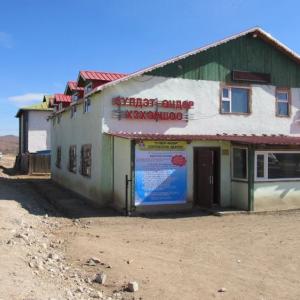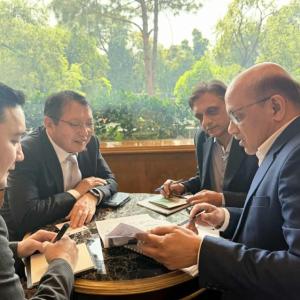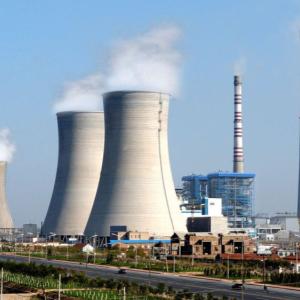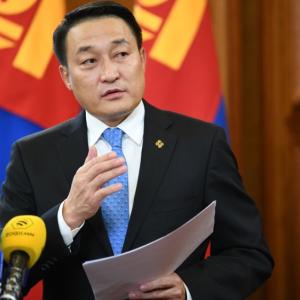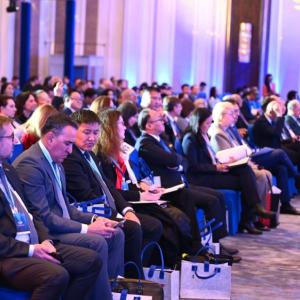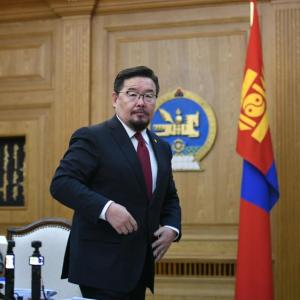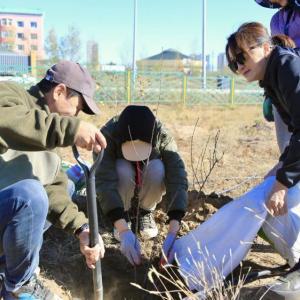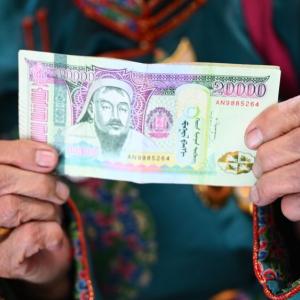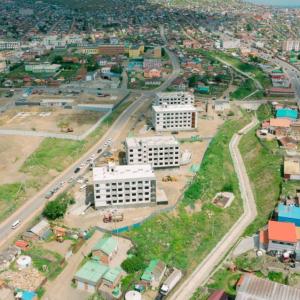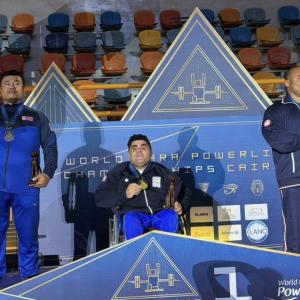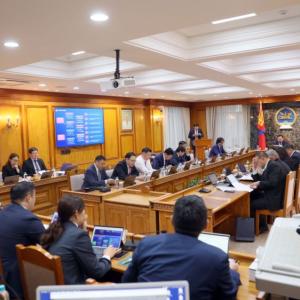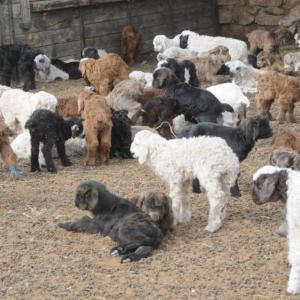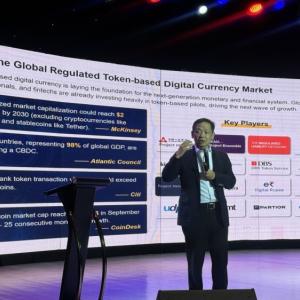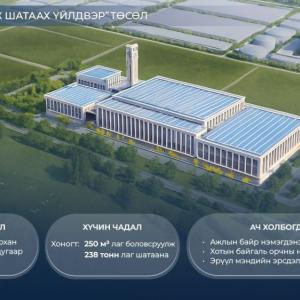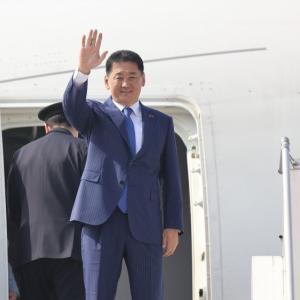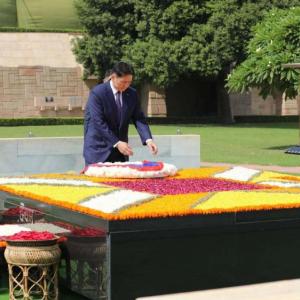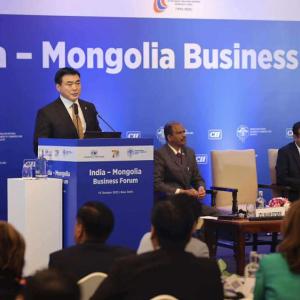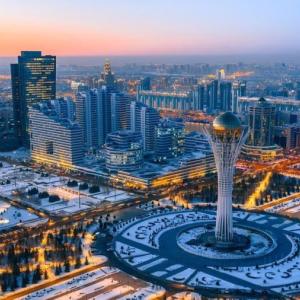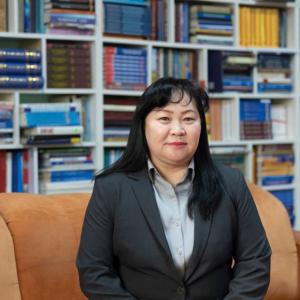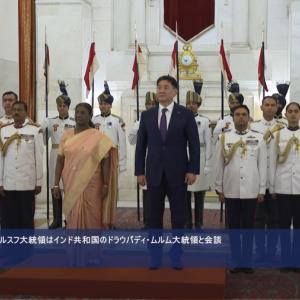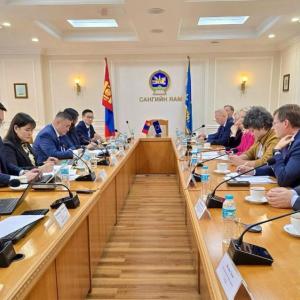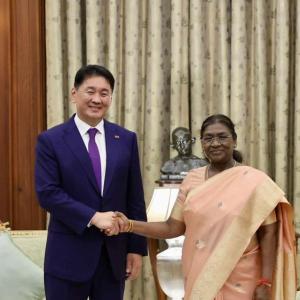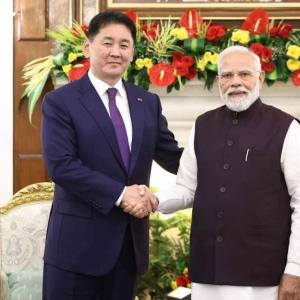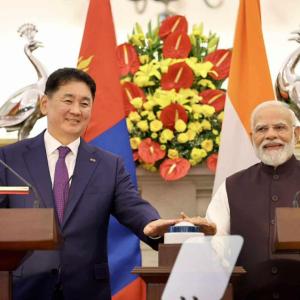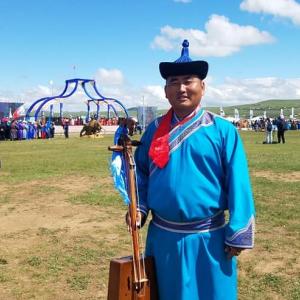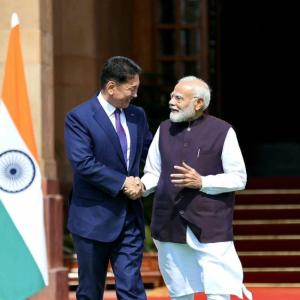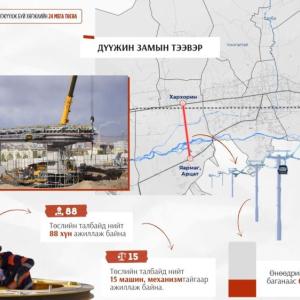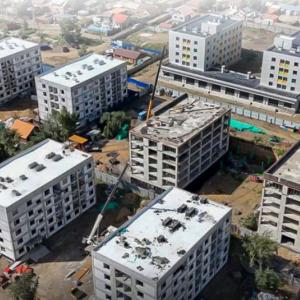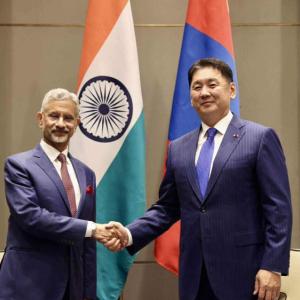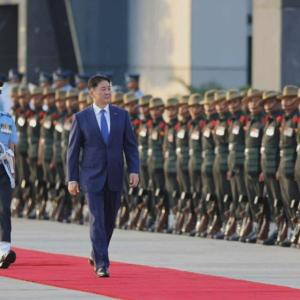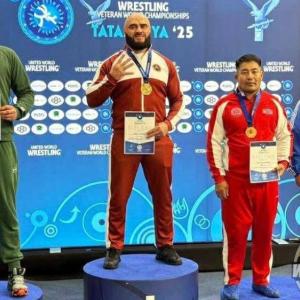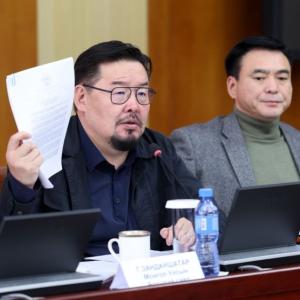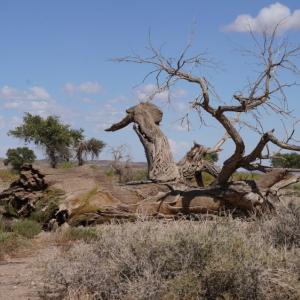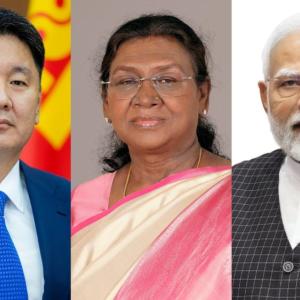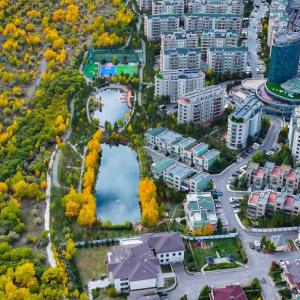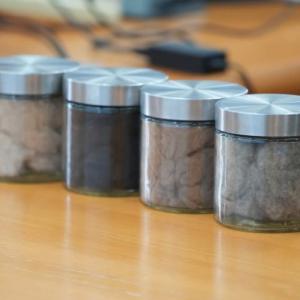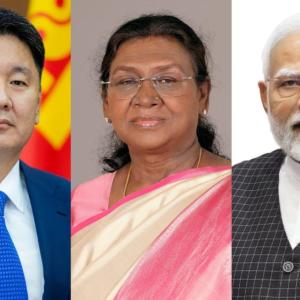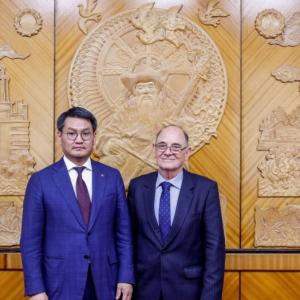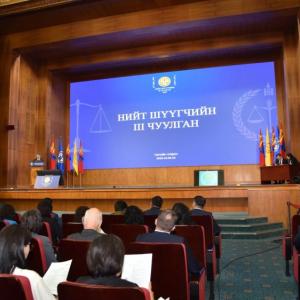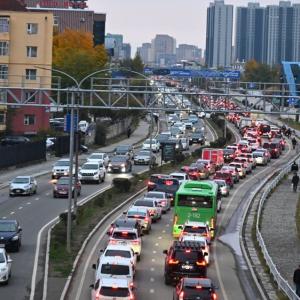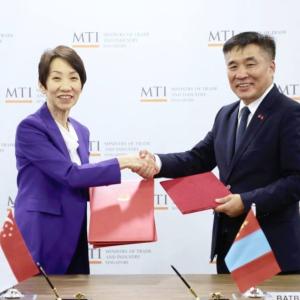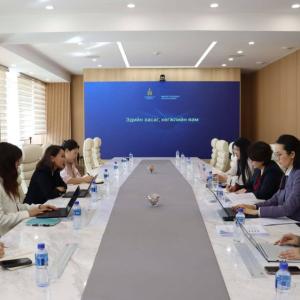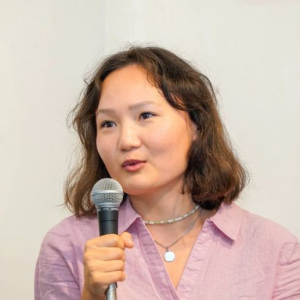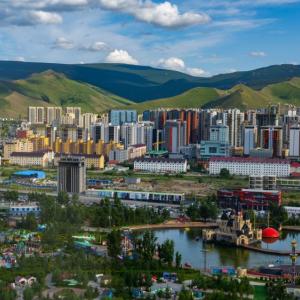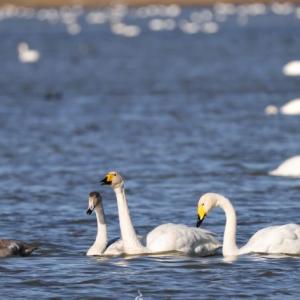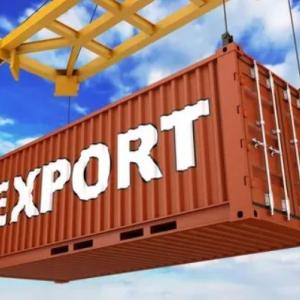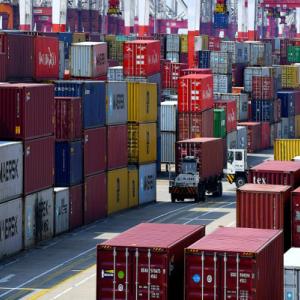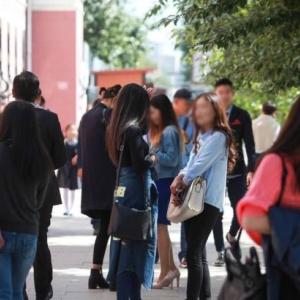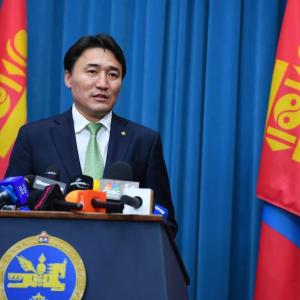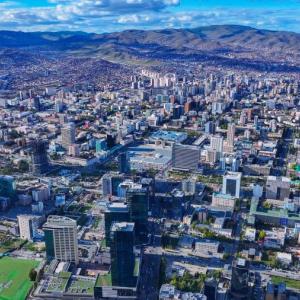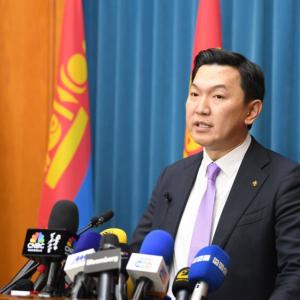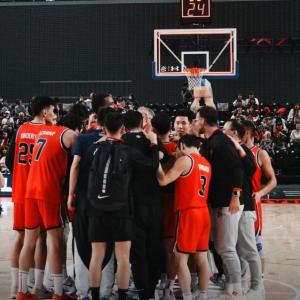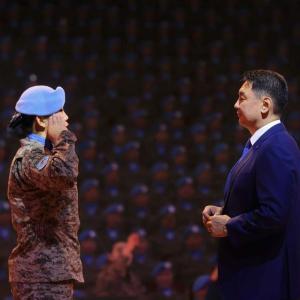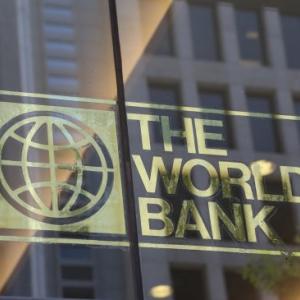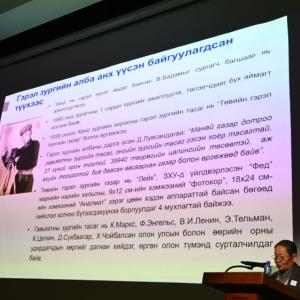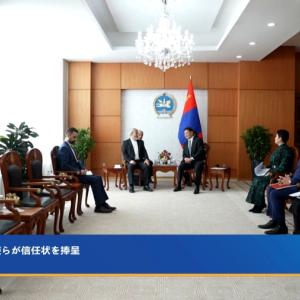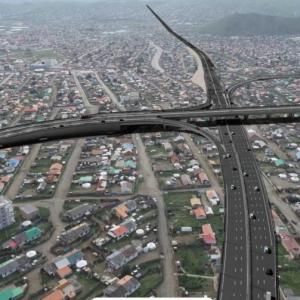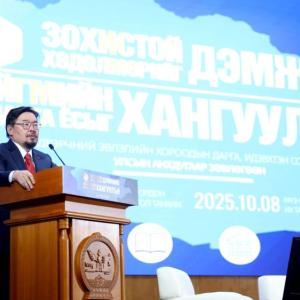Mongolia Forum 2025 Takes Place under the Theme "Northeast Asian Peaceful Development and Korean Unification"
Politics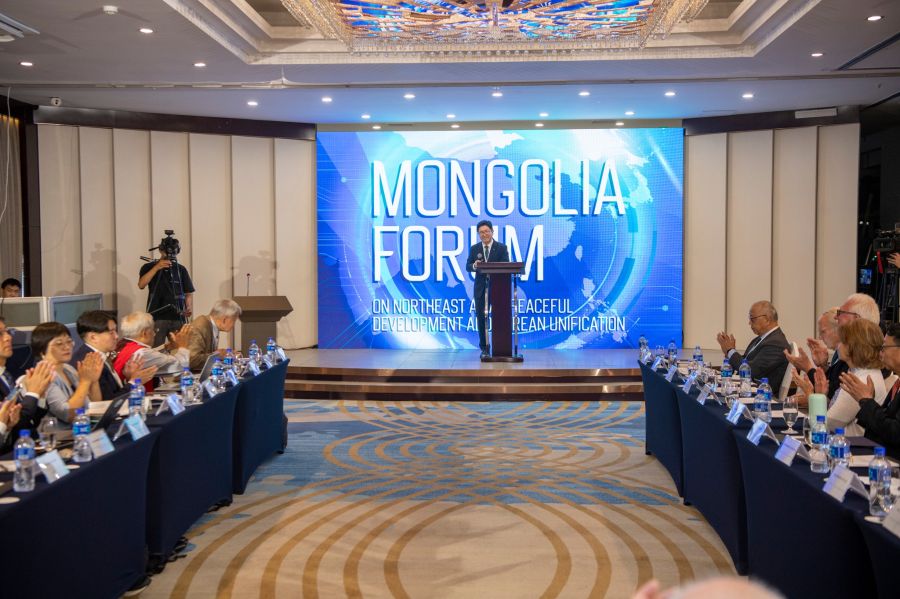
Ulaanbaatar, June 25,
2025 /MONTSAME/. “Mongolia Forum 2025” took place under the theme “Northeast
Asian Peaceful Development and Korean Unification” on June 20-24, 2025, in
Ulaanbaatar, Mongolia.
In 2018, non-governmental organizations and research institutes
from Mongolia, the Republic of Korea, the People’s Republic of China, Japan,
the Russian Federation, and the United States of America agreed to jointly
organize the “Mongolia Forum” each year as a platform to discuss the matter of Northeast
Asian Peaceful Development and Korean Unification. Mongolia is considered an
ideal neutral location for such a forum, as it maintains friendly relations
with its neighboring countries, has no territorial or border disputes, and is
the only country in not only Northeast Asia but in the world that has politically
affirmed its nuclear-weapon-free status. The Mongolia Forum participants discuss
and share views on regional trade, economy, and environmental issues. However, for
the last two years, the Forum has been working to provide support and
preparation for the 17th Session of the Conference of the Parties (COP17) to
the United Nations Convention to Combat Desertification (UNCCD).
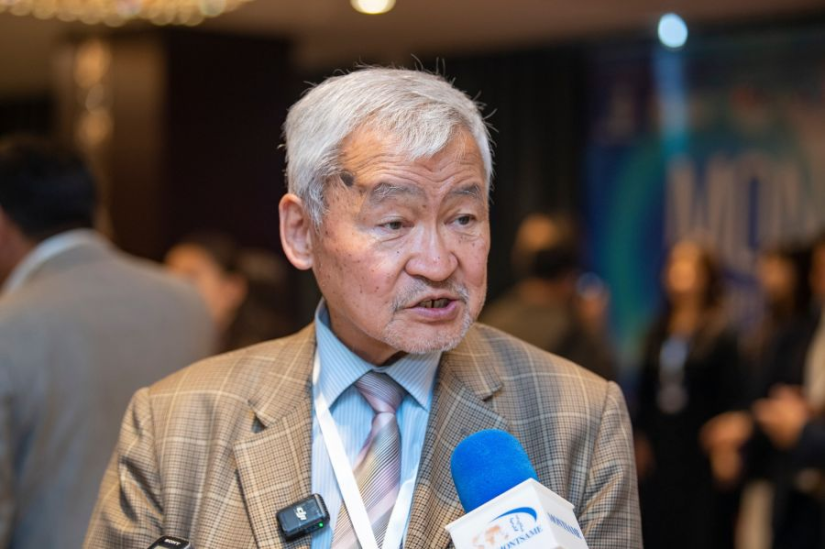 Former Mongolian Ambassador to the United Nations, Chairman of “Blue
Banner” NGO, Ambassador Enkhsaikhan Jargalsaikhan, remarked, “The Forum is expanding every year. Last year, we organized a
horse-riding trip to bring youth closer to nature and the nomadic lifestyle. While
in the past, participants of the Forum used to exchange perspectives on a particular
topic, now we release a joint statement as an outcome of the Forum. This year’s Forum prioritized youth engagement and organized an ecological movement among over
20 young people from 19 countries. Additionally, the Forum highlights the “Billions
of Trees” National Movement, initiated by the President of Mongolia, Khurelsukh
Ukhnaa, and focuses on desertification issues. Participants shared views on how
to organize and participate in COP17 to be held in Mongolia. The Forum will make
a joint statement regarding these issues and formulate plans for 2026.”
Former Mongolian Ambassador to the United Nations, Chairman of “Blue
Banner” NGO, Ambassador Enkhsaikhan Jargalsaikhan, remarked, “The Forum is expanding every year. Last year, we organized a
horse-riding trip to bring youth closer to nature and the nomadic lifestyle. While
in the past, participants of the Forum used to exchange perspectives on a particular
topic, now we release a joint statement as an outcome of the Forum. This year’s Forum prioritized youth engagement and organized an ecological movement among over
20 young people from 19 countries. Additionally, the Forum highlights the “Billions
of Trees” National Movement, initiated by the President of Mongolia, Khurelsukh
Ukhnaa, and focuses on desertification issues. Participants shared views on how
to organize and participate in COP17 to be held in Mongolia. The Forum will make
a joint statement regarding these issues and formulate plans for 2026.”
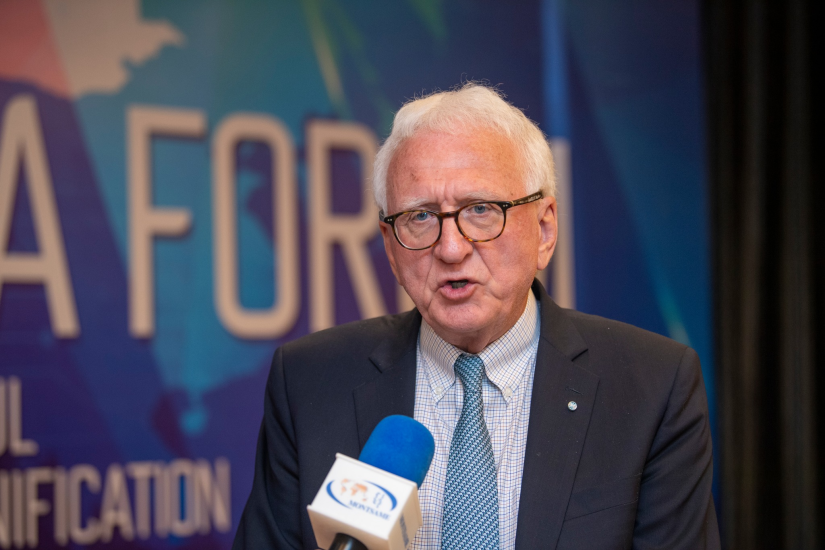 Senior Scholar at the National Institute for Public Policy,
Ambassador Robert G. Joseph, noted, “This is my first
visit to Mongolia, and I have positive impressions about the success of
Mongolia in establishing a stable democracy and neutral national security and
foreign policy. Mongolia is active in promoting peace and stability in the
region and globally, as well as efforts to improve the environment. Mongolia is
also very active through the ‘Mongolia Forum’ in helping prepare the next
generation of leaders to further contribute to the peace and stability of the
nation. The only solution to the nuclear challenges is a peaceful, non-nuclear
Korean Peninsula. This is important to the global non-proliferation regime.”
Senior Scholar at the National Institute for Public Policy,
Ambassador Robert G. Joseph, noted, “This is my first
visit to Mongolia, and I have positive impressions about the success of
Mongolia in establishing a stable democracy and neutral national security and
foreign policy. Mongolia is active in promoting peace and stability in the
region and globally, as well as efforts to improve the environment. Mongolia is
also very active through the ‘Mongolia Forum’ in helping prepare the next
generation of leaders to further contribute to the peace and stability of the
nation. The only solution to the nuclear challenges is a peaceful, non-nuclear
Korean Peninsula. This is important to the global non-proliferation regime.”
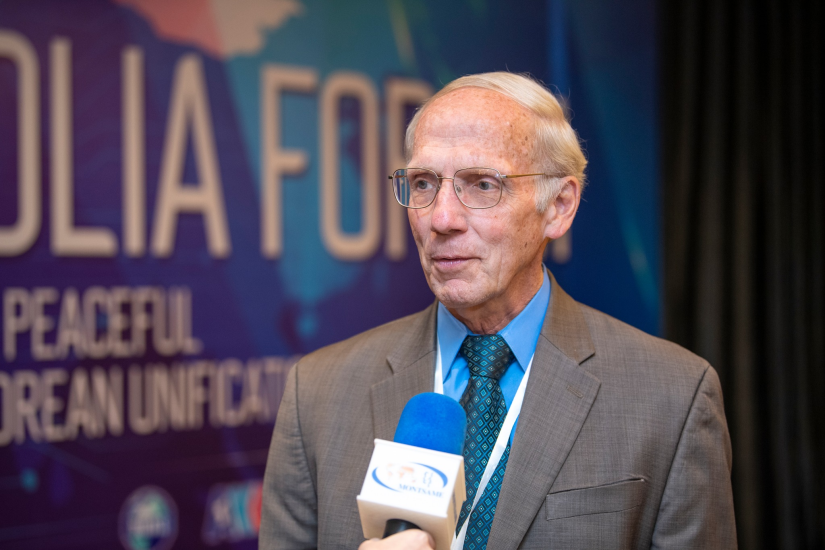 Strategic Advisor and Former International Vice President of the
Global Peace Foundation, Mr. David Caprara, stated, “First, we want to commend President Khurelsukh Ukhnaa and the
great nation of Mongolia for hosting this Forum for the seventh year. We started
with a tribute to the beautiful legacy of the Former President of Mongolia,
Ochirbat Punsalmaa, as a peacebuilder in the world, who was a patron for the ‘Mongolia
Forum’, together with his right-hand Ambassador Enkhsaikhan Jargalsaikhan and the
‘Blue Banner’ NGO. We are forging partnerships out of this Forum. For instance,
the United Nations Beijing was here today with a massive forestation model in
Inner Mongolia. I believe the Forum brings a unique dimension of how COP17 can
link environmental forestation models on the ground here. Also, we are bringing forestation
models from Africa and Latin America to offer examples. In the environmental
session, we are announcing a Memorandum of Agreement with the “My Club” Tree
Planting Movement, which has planted 2 million trees, and the Global Peace
Leadership Corps of young leaders. Yesterday, delegates, including ambassadors
and scholars, planted trees together in Mongolia, which they can track throughout
their lives through an online application. This way, we are part of COP17
through action. This year’s Forum is special because young leaders are being trained
by experts, former ambassadors, and scholars, which is a marrying of technical
expertise with the vision of young people. We are promoting action-oriented
scholarship and dialogues that lead to more expansive multilateral frameworks
with an end goal of seeing the crisis on the Korean Peninsula resolved through
a new nation – the Korean dream.”
Strategic Advisor and Former International Vice President of the
Global Peace Foundation, Mr. David Caprara, stated, “First, we want to commend President Khurelsukh Ukhnaa and the
great nation of Mongolia for hosting this Forum for the seventh year. We started
with a tribute to the beautiful legacy of the Former President of Mongolia,
Ochirbat Punsalmaa, as a peacebuilder in the world, who was a patron for the ‘Mongolia
Forum’, together with his right-hand Ambassador Enkhsaikhan Jargalsaikhan and the
‘Blue Banner’ NGO. We are forging partnerships out of this Forum. For instance,
the United Nations Beijing was here today with a massive forestation model in
Inner Mongolia. I believe the Forum brings a unique dimension of how COP17 can
link environmental forestation models on the ground here. Also, we are bringing forestation
models from Africa and Latin America to offer examples. In the environmental
session, we are announcing a Memorandum of Agreement with the “My Club” Tree
Planting Movement, which has planted 2 million trees, and the Global Peace
Leadership Corps of young leaders. Yesterday, delegates, including ambassadors
and scholars, planted trees together in Mongolia, which they can track throughout
their lives through an online application. This way, we are part of COP17
through action. This year’s Forum is special because young leaders are being trained
by experts, former ambassadors, and scholars, which is a marrying of technical
expertise with the vision of young people. We are promoting action-oriented
scholarship and dialogues that lead to more expansive multilateral frameworks
with an end goal of seeing the crisis on the Korean Peninsula resolved through
a new nation – the Korean dream.”
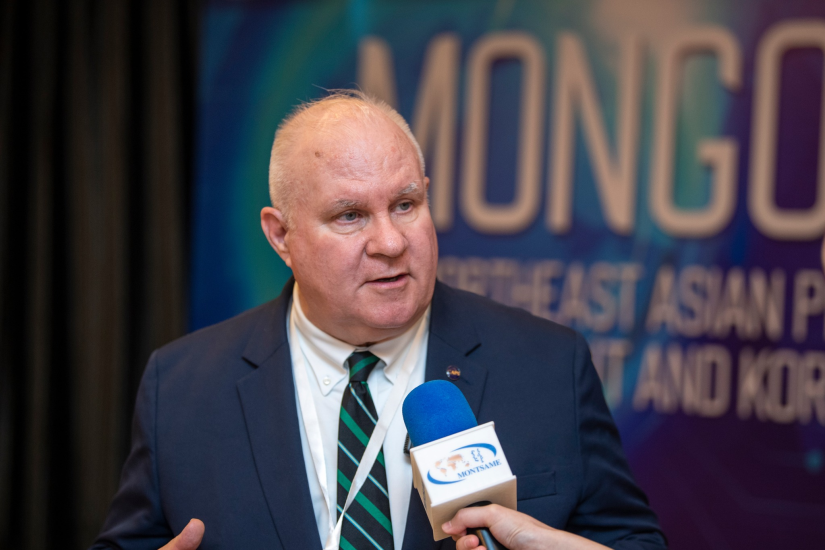 Retired U.S. Army Special Forces Colonel, Mr. David Maxwell,
said, “The challenges, of course, lie
in the fact that the Northeast Asian region is an area of one of the most
concentrated military forces. So, miscalculation can be catastrophic. Whatever happens
in Northeast Asia will have global consequences. Thus, when considering security
issues, it is imperative to prevent miscalculation. And miscalculation can
derive from misunderstanding. So, dialogues like the ‘Mongolia Forum’ are
critical. It takes dialogue, understanding, and commitment to peace over
conflict. I think it is achievable, but it will always be a work in progress. We
must do everything we can through education, interpersonal contacts, government
dialogues, and commitment to a peaceful world. And Mongolia admirably leads the
way by being a mediator and a neutral facilitator that solely seeks peace.”
Retired U.S. Army Special Forces Colonel, Mr. David Maxwell,
said, “The challenges, of course, lie
in the fact that the Northeast Asian region is an area of one of the most
concentrated military forces. So, miscalculation can be catastrophic. Whatever happens
in Northeast Asia will have global consequences. Thus, when considering security
issues, it is imperative to prevent miscalculation. And miscalculation can
derive from misunderstanding. So, dialogues like the ‘Mongolia Forum’ are
critical. It takes dialogue, understanding, and commitment to peace over
conflict. I think it is achievable, but it will always be a work in progress. We
must do everything we can through education, interpersonal contacts, government
dialogues, and commitment to a peaceful world. And Mongolia admirably leads the
way by being a mediator and a neutral facilitator that solely seeks peace.”
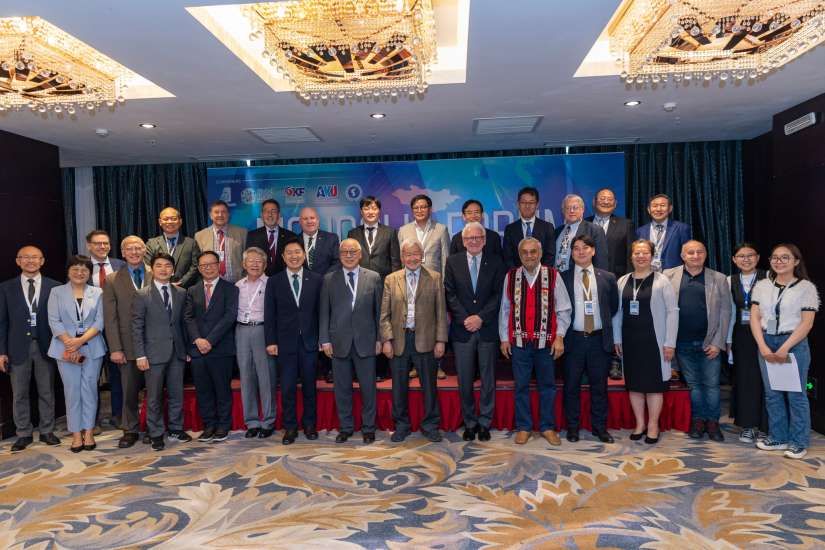
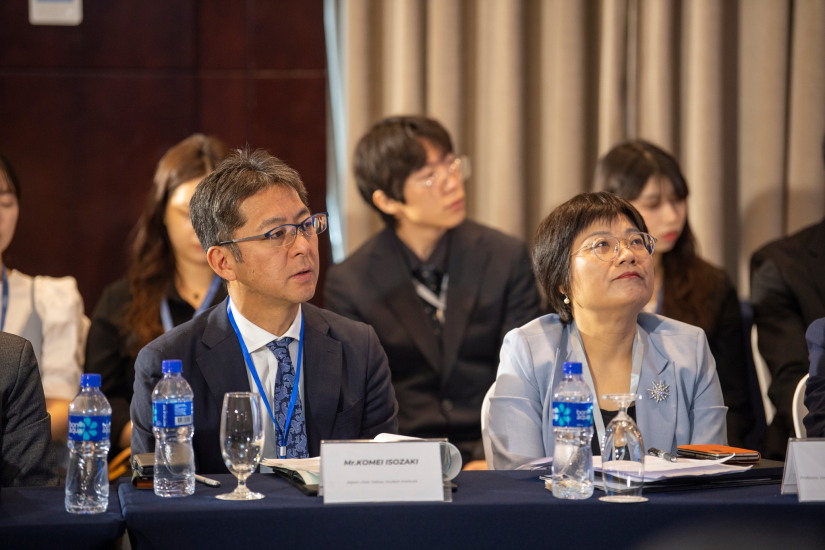
 Ulaanbaatar
Ulaanbaatar





